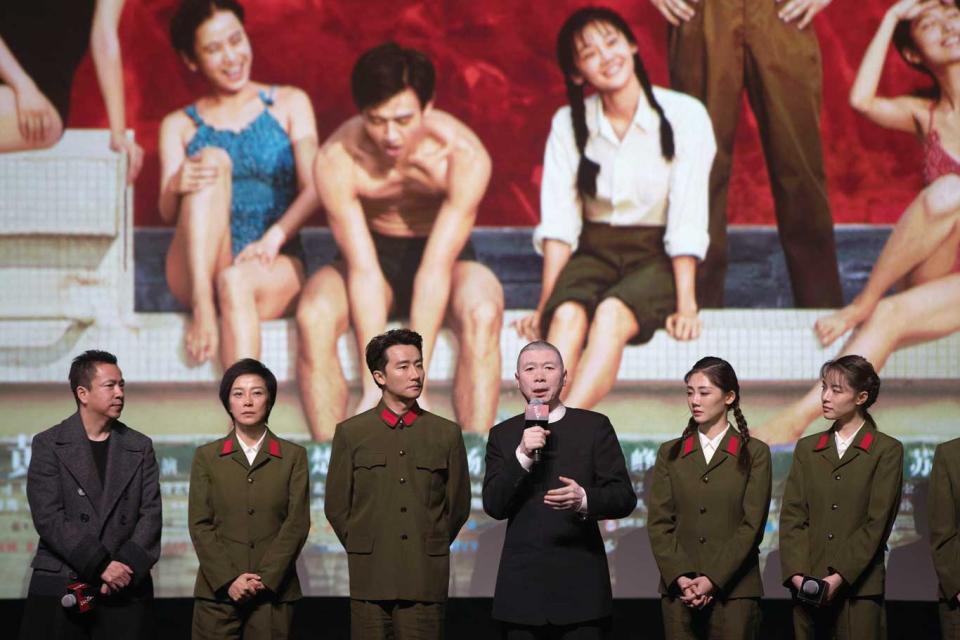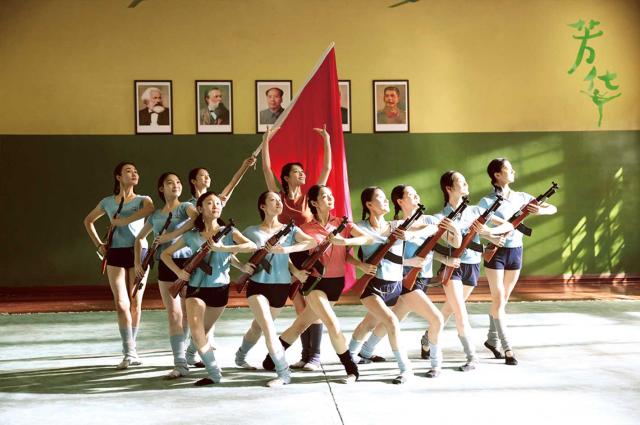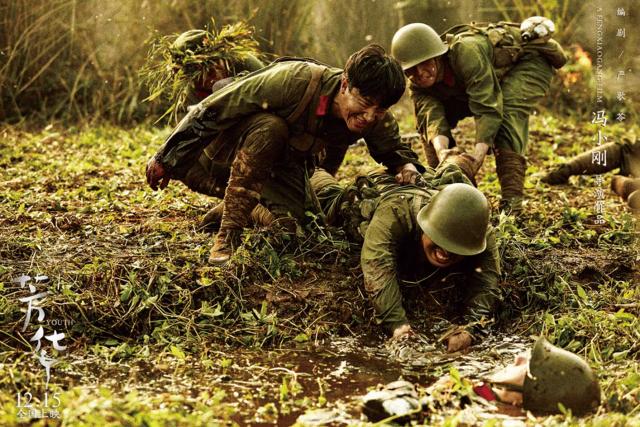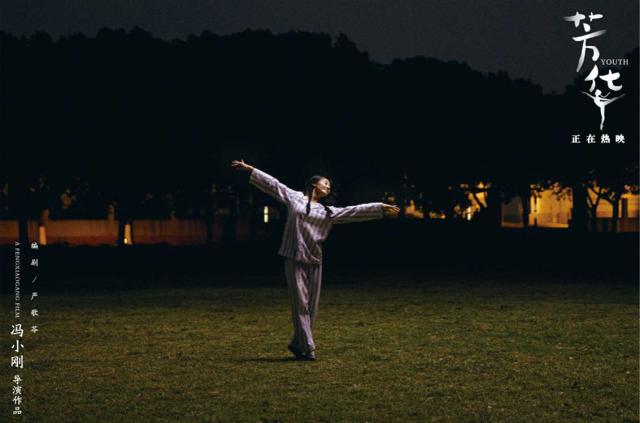Based on the award-winning screenwriter and author Yan Geling’s novel You Touched Me, Youth records the tempestuous fate of young dancers in a PLA art troupe, whose duty was to promote art, culture, morals and values. The story spans from the later Cultural Revolution to the early 1990s, following China’s growing embrace of the market economy and commercialism. It also covers the Sino-Vietnam war in 1979.
The movie revolves around two outcasts of the troupe: an unpopular newcomer and a disgraced role model for goodness.
He Xiaoping, the art troupe’s new girl, is discriminated against by her peers due to the humble status of her family and her insular and withdrawn personality. Treated with disdain, Xiaoping is later reassigned to the battlefield medical team. As a medic, she unexpectedly becomes a war hero, then suffers a mental breakdown after the war.
Xiaoping’s sole supporter in the art troupe is Liu Feng, a kind young soldier long regarded as the gold standard of moral perfection. The whole troupe later turns against Liu after he is falsely accused of sexual harassment, and he is reassigned to a border post before being sent away to war in Vietnam.
The story is narrated through the eyes of Xiao Suizi, a dancer in the troupe who later becomes a war correspondent. The character is based on screenwriter Yan Geling, who says Youth is semi-autobiographical.
The film itself experienced a twist of fate: first scheduled for release on September 29 and expected to dominate the box office over China’s October National Holiday, it was abruptly postponed until later in 2017.
Youth scored 7.9/10 on the leading Chinese review website Douban, a relatively high score compared to other domestic movies this year. It has sparked heated discussion online.
Audiences were moved by characters and their struggle. Its nostalgia-laden depiction of the youthful longing of the 1970s also drew a number of middle-aged and older viewers to cinemas.
“My mom watched the film in tears. This film was like a mirror that let me glance at a much younger version of her,” one netizen commented.
Yin Hong, a scholar at Tsinghua University, says Youth as a work is representative of Feng’s career. “Nowadays there seems to be no one but Feng in China who could get a film that covers so many sensitive issues publicly screened. Its meaning transcends the film itself. More people will be encouraged to explore the history it involves,” Yin says.
Zhan Qingsheng, associate professor at the Department of Military Culture and Communication of the People’s Liberation Army Arts College said: “Certain compromises and incoherence in content do exist in the film. But in the entertainment-oriented, capital-driven film industry, Youth can be seen as a first-rate work of the year, as it seriously explores history and reality, boldly examines sensitive topics which have rarely been discussed in film before, and impresses viewers with quality art effects.”
Some have criticized the film as a superficial and sentimental melodrama that ignores the darker side of China’s modern history.
“The narrative of the story is fragmented and confusing. Too many things the director wants to express in a single film: his personal longing for bygone youth, the cruelty of war, the criticism of suppressing collectivism, sympathy for Sino-Vietnam war veterans. But all these issues are just lightly touched, which leaves a sentimental melodrama – a personal ode to youth,” says Zhou Xia, associate researcher at the China Film Art Research Center.
“Feng is essentially a popular drama maker, even if he believes he is creating an arthouse film. Never has he been a sharp critic, observer or an auteur,” said film critic Wusequanwei in an interview with NewsChina. “He has no intention to film history. He fears to touch on real historical issues and avoids any deeper discussion of the heavier topics in our history. What he really craves is creating a resonating sentiment, an emotional outlet for the masses.”

 Old Version
Old Version


